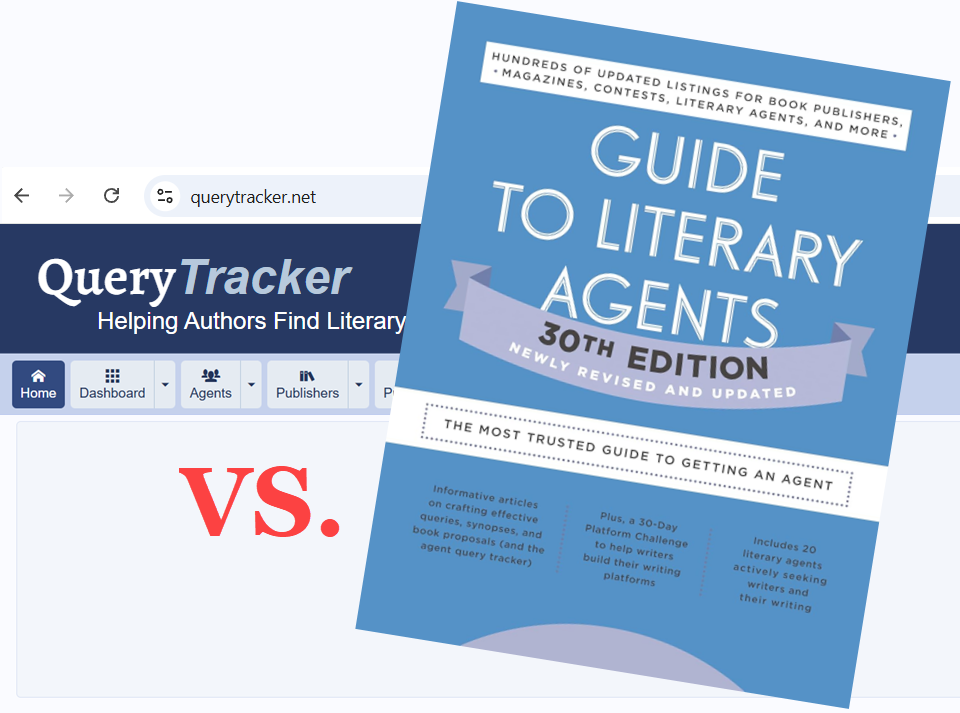QueryTracker vs. ‘The Guide to Literary Agents’

As I prepared to start querying last fall, I picked up the 30th edition of The Guide to Literary Agents. I noted all the agents I wanted to reach out to, then went to each agency’s website to learn more. And what I learned is that a book is not the ideal way to get information about literary agents.
Not only were some agents who were listed as open to submissions closed, but I found that several of the agents I was interested in had left their agencies. Yes, it was nice to have a list of reputable agencies, but it was a lot to wade through to have so much of it be out of date.
I quickly found my way to QueryTracker, which is how perhaps half of agencies accept queries. There you can search for agents by genre and learn what they’re looking for. They even list agents who accept queries via email instead of through QueryTracker, so it’s comprehensive and up to date. It’s a much better way to find agents.
The Most Useful Part of The Guide
I can see how this book would have been incredibly useful 30 years ago—or perhaps even 15 years ago, which was when QueryTracker launched. However, the latter two-thirds of The Guide dedicated to agents is of limited usefulness. What I would have preferred was listings focused just on the agencies and what they represent—and dropping the information on Member Agents, How to Contact, Terms, and Writers Conferences they attend. All that other information is best discovered on the agency’s website.
With the listings reduced, the much more useful first one-third of the book could be expanded. This part had essays on writing query letters, writing a synopsis, tracking queries, and more. If that content were bulked up, The Guide could be a much stronger rival to books like Get Signed by Lucinda Halpern and Funny You Should Ask by Barbara Poelle.
To receive future posts or to become a Patron and support my dystopian sci-fi novel and get special thank-you goodies upon its publication, subscribe on Substack →